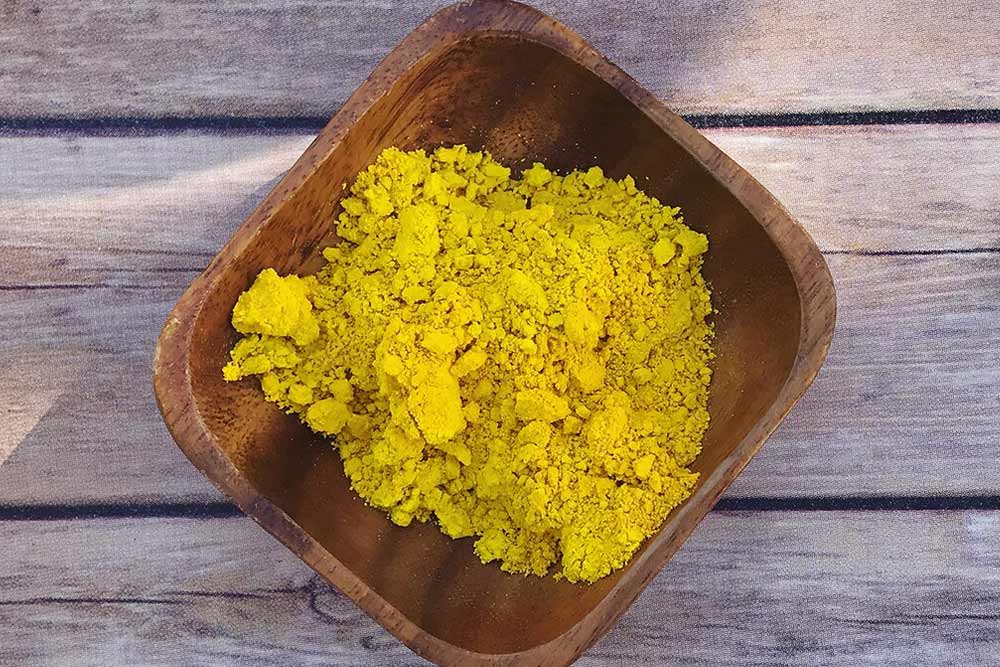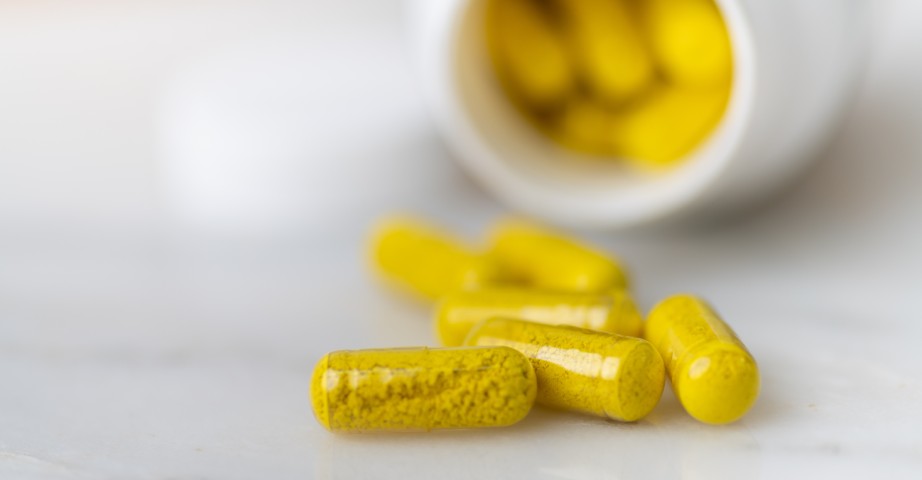Berberine - Properties, Effects, Contraindications

Plant alkaloids have been gaining significant attention from scientists due to their promising biological activity. One of the most extensively researched compounds is berberine, which may have numerous health benefits. It is predominantly found in plants such as barberry, long turmeric, and Canadian goldenseal.
What is berberine, and what does it do? How and when should it be taken to observe its beneficial effects on the body? Can this natural alkaloid help reduce blood sugar and cholesterol levels? Learn more about the effects and properties of berberine, which has been used for centuries in traditional Chinese medicine.
Table of contents
- What is Berberine?
- Health Benefits and Effects of Berberine
- What Does Berberine Do?
- Effects of Berberine – What Can You Achieve?
- Which Berberine Supplements Are the Best?
- How to Dose Berberine?
- Should Berberine Be Taken in the Morning or Evening?
- Side Effects of Berberine
- Berberine – Contraindications
- Interactions with Medications – What Should You Avoid Combining Berberine With?
- How Berberine Affects the Body – Summary
What is Berberine?
From a chemical standpoint, berberine is an alkaloid classified as an isoquinoline alkaloid. It is a plant-based compound found in the roots and stems of the small thorny shrub called common barberry. Smaller amounts of berberine can also be found in Mahonia, Canadian goldenseal, and Chinese cork oak.
What do we know about berberine so far? Scientists have been studying this alkaloid for over eight decades. The first review of its chemical properties and consumption was published in the 1920s. This compound can be extracted from natural sources or synthesized chemically. On the market, it is available in supplements either as a natural extract or in the form of berberine sulfate or berberine hydrochloride.
Health Benefits and Effects of Berberine
Plants rich in berberine have been used for centuries in traditional Ayurvedic medicine, Chinese medicine, and by Native American communities. They were used for treating oral infections, promoting wound healing, and alleviating indigestion symptoms. The effects of berberine have also proven effective against various microorganisms, including bacteria, viruses, fungi, and protozoa.
This plant alkaloid has remarkable health and pharmacological properties. It's worth noting that when used in typical doses, berberine has low toxicity and does not cause side effects.
Scientific studies have shown that berberine possesses anti-inflammatory, antioxidant, anti-diabetic, and cholesterol-lowering properties. This compound may be useful in treating conditions like diabetes, polycystic ovary syndrome (PCOS), and non-alcoholic fatty liver disease (NAFLD).
In addition, berberine may help regulate carbohydrate metabolism, maintain a balance between antioxidant and pro-oxidant factors, and lower blood pressure.

What Does Berberine Do?
Berberine is an alkaloid known for its antioxidant and anti-inflammatory properties. Long-term use can positively influence blood glucose levels, increase insulin sensitivity, and improve fat metabolism.
Berberine is also becoming a popular ingredient in weight loss supplements. Due to its effects, it may support weight loss, not only by regulating appetite but also by influencing the secretion of hormones that manage the body's energy balance and fat storage, such as insulin, leptin, and adiponectin.
However, it is important to remember that berberine itself does not have fat-burning properties. To see benefits, one should also adopt healthier eating habits and increase physical activity.
Can Berberine Lower Blood Sugar Levels?
According to research, berberine has a positive effect on lowering blood sugar levels, both fasting and post-meal. Moreover, this plant alkaloid may also help improve insulin sensitivity and regulate glycated hemoglobin levels. These sugar-lowering effects suggest that berberine could be a valuable support for individuals with type 2 diabetes and insulin resistance.
Can Berberine Lower Cholesterol?
Studies have shown that berberine may help reduce LDL (bad) cholesterol and triglyceride levels in the body. Additionally, it may contribute to strengthening blood vessels and improving the lipid profile, reducing the risk of developing cardiovascular diseases.
Berberine's Anti-inflammatory and Antibacterial Properties
Berberine has shown anti-inflammatory properties by lowering the concentration of pro-inflammatory cytokines and inhibiting inflammatory responses. Additionally, the compound may inhibit the growth or destroy certain types of bacteria and fungi.
Berberine and Non-Alcoholic Fatty Liver Disease (NAFLD)
Berberine may positively influence certain metabolic parameters, making it a useful aid for individuals suffering from non-alcoholic fatty liver disease (NAFLD).
The use of berberine supplements among people with NAFLD may help:
- Improve lipid profiles – lowering total cholesterol, LDL cholesterol, and triglycerides.
- Enhance carbohydrate metabolism – reducing glycated hemoglobin levels and insulin resistance.
- Improve liver function – leading to a potential reduction in the levels of alanine aminotransferase (ALT), a liver enzyme.
Effects of Berberine – What Can You Achieve?
Thanks to its anti-inflammatory, antioxidant, and metabolic-regulating properties, berberine is becoming increasingly popular among individuals seeking support for weight loss or lowering blood glucose levels. This natural alkaloid has a multifaceted effect on the human body and may play a vital role in preventing numerous lifestyle diseases.
How soon can you observe the effects of berberine? It is recommended to take berberine supplements for at least 10–12 weeks. After this period, improvements in lipid profiles and blood glucose regulation can be noticed. Weight loss effects should also begin to show. Taking berberine in combination with a well-balanced diet and regular physical activity can provide comprehensive support for the weight loss process.
Which Berberine Supplements Are the Best?
When choosing a berberine supplement, it's important to focus on the content of the natural alkaloid in the product and the form in which it is presented. Which form of berberine is the best? One of the most bioavailable forms of this compound is berberine hydrochloride (HCL).
Supplements labeled as berberine HCL offer significantly better bioavailability, which could improve the effectiveness of supplementation. Additionally, berberine is available in the form of berberine sulfate, which may positively affect gut microbiota, providing support in cases of gastrointestinal inflammation or digestive issues.
How to Dose Berberine?
To observe the beneficial effects of berberine, scientific reports suggest a daily intake of 300 mg to 500 mg of this alkaloid. Due to its short half-life in the bloodstream, it is recommended to take berberine in several doses throughout the day, preferably with meals.
It is crucial not to exceed the recommended daily dosage as excessive intake could cause side effects. Some studies suggest that taking too much berberine can lead to mild side effects, but reasonable and mindful use should not negatively affect health or well-being.
Should Berberine Be Taken in the Morning or Evening?
People starting supplementation often wonder when to take berberine to experience its benefits. Research shows that berberine can be taken both in the morning and evening. There's no issue with taking it in the afternoon either. Therefore, you can take it at whatever time of day is most convenient for you.
The effects of berberine are typically visible after 8–12 weeks. However, some individuals may require more time to see the full effectiveness. Immediate results are unlikely, especially in cases of obesity. Significant improvements in insulin sensitivity and fat loss usually take longer.

Side Effects of Berberine
Some studies have noted mild side effects of berberine, particularly when too much of the alkaloid is consumed. These side effects are generally related to the digestive system and may include bloating, nausea, stomach pain, constipation, or diarrhea. Excessive berberine intake may also cause vomiting, headaches, or excessive lowering of blood sugar levels.
Berberine – Contraindications
Women who are pregnant or breastfeeding should avoid consuming berberine, as it may trigger uterine contractions and increase the risk of premature labor. People with advanced digestive system diseases (such as liver conditions) should exercise caution when using this compound, as should individuals who regularly take medications containing sildenafil, cyclosporine, or lovastatin. Most studies to date have not shown any severe, health-damaging side effects of berberine.
Interactions with Medications – What Should You Avoid Combining Berberine With?
Berberine may interfere with the absorption of certain medications. Therefore, individuals who regularly take pharmaceutical drugs should consult with a healthcare provider before adding this alkaloid to their diet.
Research suggests that berberine should not be combined with anticoagulants, glucose-lowering drugs, NSAIDs, or sedatives. If you suffer from a chronic condition or have concerns about the safety of this compound, consult a doctor to ensure it will not negatively affect your health.
How Berberine Affects the Body – Summary
Used for centuries in traditional Chinese medicine, berberine demonstrates numerous health benefits. In addition to influencing glucose metabolism and fatty acid processing, it helps lower cholesterol and triglyceride levels in the blood, as well as supporting the weight loss process. Its positive effect on numerous systems and organs caused wide availability of diet supplements containing this substance.
Where to buy berberine to be sure it meets high quality standards and is indeed a valuable source of natural alkaloid? Though preparations containing berberine are available in many herbal, healthy food or med stores, it's best to buy the product from a reliable manufacturer. OstroVit offers dietary supplements containing barberry root extract standardized to 2% berberine. Thanks to their pure, simple composition and laboratory-tested quality, they can be an excellent addition to your daily diet, providing you with a valuable plant compound.
Bibliography:
- https://pubmed.ncbi.nlm.nih.gov/30393248/
- https://pubmed.ncbi.nlm.nih.gov/25498346/
- https://pubmed.ncbi.nlm.nih.gov/30538756/
- https://www.ncbi.nlm.nih.gov/pmc/articles/PMC7028834/
- https://pubmed.ncbi.nlm.nih.gov/32353823/
- https://pubmed.ncbi.nlm.nih.gov/25423280/
- https://pubmed.ncbi.nlm.nih.gov/30599908/

